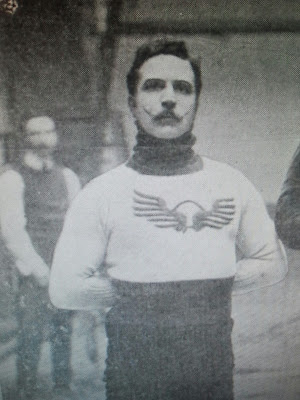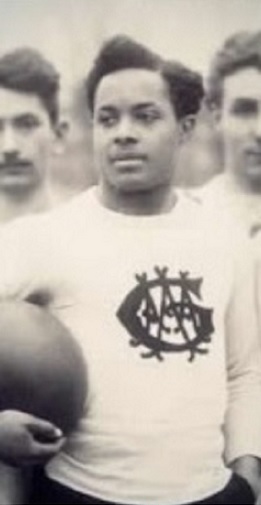Given current events, we here at Oldest Olympians felt that we could provide an infinitesimal contribution in emphasizing Black Lives Matter by producing a quick blog on the topic of the first black Olympian. Conveniently enough, it just so happens that this fits the theme of Olympic mysteries. If one were to perform an internet search on this topic, the answer you would likely find is that Constantin Henriquez was the first black Olympian, and that would be correct. Somewhat.
Most sources would list this individual’s full name as Constantin Francisco Henríquez de Zubiría, who won a gold medal in rugby, as well as a silver medal in the tug-of-war, at the 1900 Paris Olympics. While photographs from the rugby tournament show a black athlete, however, those from the tug-of-war competition do not. Realizing this discrepancy led the OlyMADMen to discover that these records were actually discussing two different individuals.

(Francisco Henríquez de Zubiría)
Thanks to assistance from Spanish Olympic historian Fernando Arrechea, it is now believed that the tug-of-war competitor was Francis Henriquez de Zubiría, born December 10, 1869 in Paris and died September 2, 1933. Until a 1917 naturalization, however, Zubiría was a Colombian, which makes him the first representative from that country at the Olympics. You can read a little more about him at his now-public OlyMADMen profile.

(Constantin Henriquez)
So who was the first black Olympian then? That distinction goes to Constantin Henriquez, who won a gold medal in 1900 Olympic rugby tournament, thus also making him the first black Olympic champion. As a competitor, however, he is credited as being a representative of Haiti, thus making the 1900 Olympic rugby squad a “mixed” team rather than just a “French” one. Henriquez was also a track and field athlete, introduced football to Haiti in 1904, and founded the Union Sportive Haïtienne with his brother Alphonse (who would later take part in the music competitions at the 1932 Los Angeles Games). Constantin later studied medicine and was a doctor by profession. We are not yet certain, but we believe, according to Haiti’s civil registration, that he was born c. 1880 and died February 1, 1942 in Port-au-Prince.